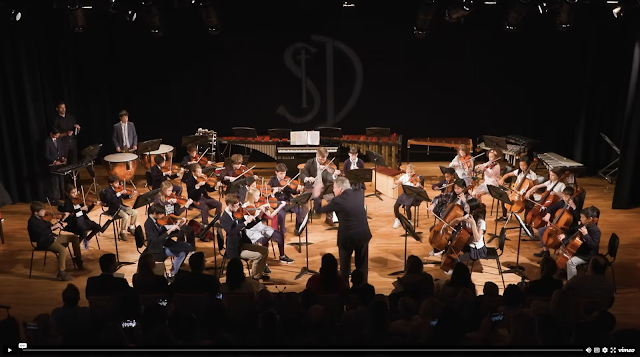Visual and performing arts, two facets of our Arts pillar, have been shining with particular intensity.
The recent Saint David's Winter Concert (see highlights reel, below) filled our theatre with rich and varied compositions performed by the Saint David's Philharmonic Ensemble (who were joined by Spence School's Middle Orchestra), our Percussion Ensemble, and Chamber Singers. The musical performances were captivating and all of the young musicians, at once suspended and immersed in the moment. It reminded me of a Chamber Singer's comment earlier this year following an on-site workshop with Yale's a cappella group: "This was the best day of my life!" declared the fourth grader, who clearly loves to sing and thrives when sharing his joy with an audience.Intentional integration of the arts within a program of studies makes a difference. It requires students to focus and persevere, paramount skills that often are lost in a distracted society with next-to-negative attention spans. When our boys prepare for a performance, whether a concert or play, they immerse themselves in the music or text; absorb, consider, repeat and tweak; transform failures into successes; and respectfully engage with one another to produce something bigger than any one person could on their own. And, when they create an original artwork drawing upon themes from topics in history, they make connections across ideas, cultures, and time itself. Guided by their exceptionally talented and dedicated teachers in these endeavors, our boys strike a joyful balance of learning and self-discovery.




